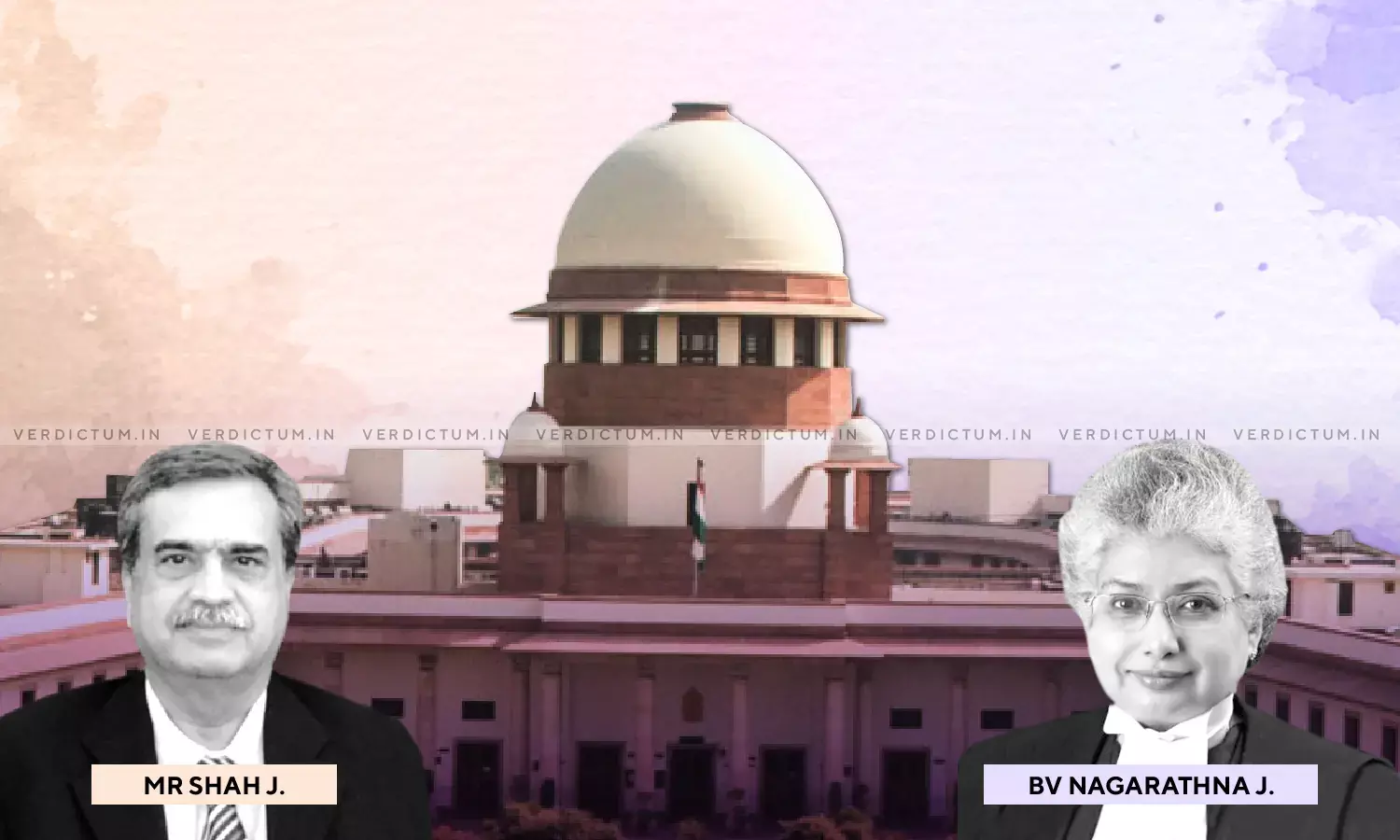MVAT Act & CST Act- Courts Must Not Exercise Jurisdiction Under Article 226 When Alternate Remedy Is Available: SC

The Supreme Court has observed that when there is an alternate remedy available, judicial prudence demands that Court refrains from exercising its jurisdiction under constitutional provisions.
A Bench of Justice MR Shah and Justice BV Nagarathna held that the High Court committed a serious error in entertaining the Writ Petition against the assessment order.
"The High Court ought to have relegated the writ petitioner – assessee to avail the statutory remedy of appeal and thereafter to avail other remedies provided under the statute," the Court held.
In this case, the High Court had set aside the assessment order of the Assessing Authority and also the belated notice of demand while exercising power under Article 226 of the Constitution.
Aggrieved, the State of Maharashtra approached the Supreme Court.
The Assessee without preferring any appeal before the first appellate authority had filed a Writ Petition before the High Court challenging the assessment order passed under the provisions of the Maharashtra Value Added Tax, 2002 (MVAT Act) and Central Sales Tax Act, 1956 (CST Act) alleging inter alia that no order was passed on March 20, 2020 and it was passed in July 2020.
Counsel Sachin Patil appeared for the State while Senior Counsel Rafique Dada appeared for the Assessee before the Apex Court.
The Court noted, "It is not in dispute that the statutes provide for the right of appeal against the assessment order passed by the Assessing Officer and against the order passed by the first appellate authority, an appeal/revision before the Tribunal. In that view of the matter, the High Court ought not to have entertained the writ petition under Article 226 of the Constitution of India challenging the assessment order in view of the availability of statutory remedy under the Act."
The Court further held the High Court has seriously erred in entertaining the writ petition under Article 226 of the Constitution of India against the assessment order, bypassing the statutory remedies.
The Court also observed that no valid reasons have been shown by the Assessee to by-pass the statutory remedy of appeal, and thus held –
"This Court has consistently taken the view that when there is an alternate remedy available, judicial prudence demands that the court refrains from exercising its jurisdiction under constitutional provisions."
The Court thus added that the High Court ought to have relegated the writ petitioner – Assessee to avail the statutory remedy of appeal and thereafter to avail other remedies provided under the statute.
Accordingly, the Court allowed the appeal and set aside and quashed the impugned order of the High Court, and relegated the Assessee to avail the statutory remedy of appeal and other remedies available under the MVAT Act and CST Act.
Cause Title – The State of Maharashtra and Others v. Greatship (India) Limited

